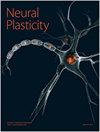The Alterations in the Brain Corresponding to Low Back Pain: Recent Insights and Advances
IF 3.7
4区 医学
Q2 Medicine
引用次数: 0
Abstract
Low back pain (LBP) is a leading cause of global disabilities. Numerous molecular, cellular, and anatomical factors are implicated in LBP. Current issues regarding neurologic alterations in LBP have focused on the reorganization of peripheral nerve and spinal cord, but neural mechanisms of exactly what LBP impacts on the brain required further researches. Based on existing clinical studies that chronic pain problems were accompanying alterations in brain structures and functions, researchers proposed logical conjectures that similar alterations occur in LBP patients as well. With recent extensive studies carried out using noninvasive neuroimaging technique, increasing number of abnormalities and alterations has been identified. Here, we reviewed brain alterations including white matters, grey matters, and neural circuits between brain areas, which are involved in chronic LBP. Moreover, brain structural and functional connectivity abnormalities are correlated to the happening and transition of LBP. The negative emotions related to back pain indicate possible alterations in emotional brain regions. Thus, the aim of this review is to summarize current findings on the alterations corresponding to LBP in the brain. It will not only further our understanding of etiology of LBP and understanding of negative emotions accompanying with back pain but also provide ideas and basis for new accesses to the diagnosis, treatment, and rehabilitation afterward based on integral medicine.与腰背痛相对应的大脑变化:最新见解与进展
腰背痛(LBP)是导致全球残疾的主要原因之一。许多分子、细胞和解剖学因素都与腰背痛有关。目前有关腰背痛神经系统改变的问题主要集中在周围神经和脊髓的重组上,但腰背痛对大脑产生影响的神经机制还需要进一步研究。根据现有的临床研究,慢性疼痛问题伴随着大脑结构和功能的改变,研究人员提出了枸杞多糖症患者也会发生类似改变的逻辑猜想。随着近年来使用无创神经成像技术进行的广泛研究,越来越多的异常和改变被发现。在此,我们回顾了与慢性枸杞痛有关的脑部改变,包括白质、灰质和脑区之间的神经回路。此外,大脑结构和功能连接异常与腰背痛的发生和转归相关。与背痛相关的负面情绪表明情绪性脑区可能发生了改变。因此,本综述的目的是总结目前关于与腰背痛相应的大脑变化的研究结果。这不仅将进一步加深我们对枸杞痛病因的理解和对背痛伴随的负面情绪的认识,还将为基于整体医学的诊断、治疗和康复提供新的思路和依据。
本文章由计算机程序翻译,如有差异,请以英文原文为准。
求助全文
约1分钟内获得全文
求助全文
来源期刊

Neural Plasticity
Neuroscience-Neurology
CiteScore
5.70
自引率
0.00%
发文量
0
审稿时长
1 months
期刊介绍:
Neural Plasticity is an international, interdisciplinary journal dedicated to the publication of articles related to all aspects of neural plasticity, with special emphasis on its functional significance as reflected in behavior and in psychopathology. Neural Plasticity publishes research and review articles from the entire range of relevant disciplines, including basic neuroscience, behavioral neuroscience, cognitive neuroscience, biological psychology, and biological psychiatry.
 求助内容:
求助内容: 应助结果提醒方式:
应助结果提醒方式:


